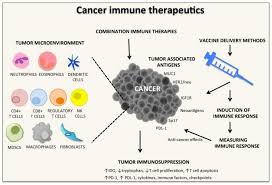Advancements in Cancer Vaccines: A New Hope in Treatment

Introduction
Cancer continues to be one of the leading causes of death worldwide, with nearly 10 million deaths in 2020 alone. The search for effective treatments has led to significant advancements in various fields, particularly immunotherapy. Among these innovations, cancer vaccines are emerging as a promising strategy that harnesses the body’s immune system to fight cancer. The relevance of developing effective cancer vaccines has escalated, particularly in the context of rising cancer rates and a growing demand for personalized treatments.
Recent Developments
In recent years, several cancer vaccines have shown promise in clinical trials. Notably, the mRNA technology that gained fame through COVID-19 vaccines is being explored for cancer treatment. Moderna, BioNTech, and other biotech companies are now actively developing individualized mRNA cancer vaccines tailored to target specific tumors found in patients.
One prominent study highlighted the efficacy of a personalized mRNA cancer vaccine in melanoma patients. In this trial, researchers administered a vaccine that encoded specific mutations from the patients’ tumors, leading to an immune response that significantly reduced tumor sizes. This innovative approach may pave the way for a new era of cancer treatment.
Impact on Treatment Landscape
Additionally, therapeutic cancer vaccines like sipuleucel-T for prostate cancer have been approved by health authorities and are being used to help extend survival in patients. These vaccines stimulate the immune system to recognize and attack cancer cells. As research continues, new cancer vaccines could be on the horizon that target a wider variety of cancers, offering hope to patients who currently have limited treatment options.
Clinical trials currently underway are focusing on preventative vaccines designed to target high-risk populations, such as those with pre-existing conditions that increase their susceptibility to certain cancers. The ability to prevent cancer before it develops would represent a monumental shift in our approach to cancer treatment.
Conclusion
In conclusion, cancer vaccines represent a significant advancement in the battle against cancer. While challenges remain, including issues of accessibility and cost, ongoing research and successful trials promise a future where cancer vaccines could be part of standard cancer prevention and treatment protocols. The landscape of cancer therapy is evolving rapidly, and as these vaccines continue to develop, they hold the potential to improve survival rates and quality of life for millions affected by cancer worldwide.









